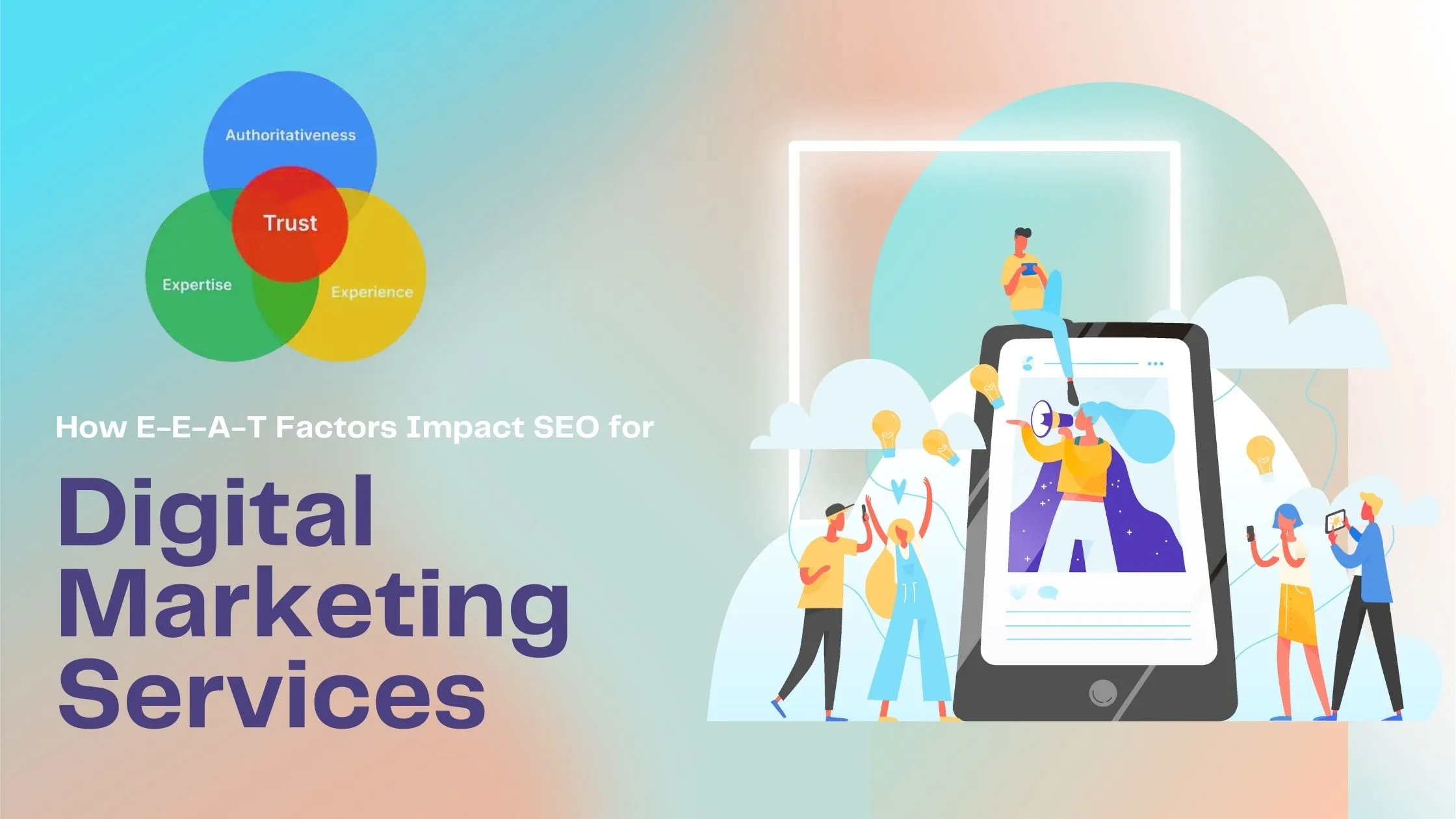Introduction
In the ever-evolving landscape of digital marketing, staying ahead of the competition requires more than just basic SEO tactics. Enter E-E-A-T, an acronym for Expertise, Authoritativeness, and Trustworthiness, which has become a critical factor in Google’s search algorithm. Understanding and implementing E-E-A-T can significantly enhance your SEO efforts, especially for digital marketing services. In this blog post, we’ll explore what E-E-A-T is, why it’s important, and how you can leverage it to boost your website’s search engine rankings.
What is E-E-A-T and Why is it Important for SEO?
E-E-A-T stands for Expertise, Authoritativeness, and Trustworthiness. These are the criteria Google uses to evaluate the quality of content and websites. Let’s break down each component:
- Expertise: This refers to the knowledge and skill level of the content creator. Google values content written by individuals who are recognized as experts in their field. For digital marketing services, this means producing content that demonstrates a deep understanding of marketing strategies, tools, and trends.
- Authoritativeness: Authoritativeness is about the credibility of the website and the content creator. Google assesses whether a site or an author is a recognized authority in their industry. For instance, having a strong portfolio of successful campaigns and being mentioned or referenced by reputable sources can boost your site’s authoritativeness.
- Trustworthiness: Trustworthiness focuses on the reliability and truthfulness of the content. Trustworthy websites are secure (using HTTPS), transparent about their policies, and provide accurate, well-cited information. For digital marketing services, this includes showcasing honest client testimonials and maintaining a clear and ethical business approach.
E-E-A-T is crucial because it helps Google ensure that users receive high-quality, reliable information. Websites that excel in E-E-A-T are more likely to rank higher in search results, leading to increased visibility and traffic.
How Google Evaluates E-E-A-T for Digital Marketing Services
Google’s evaluation of E-E-A-T involves several factors, particularly relevant to digital marketing services:
- Content Quality: Google looks for well-researched, informative, and engaging content. For digital marketing services, this means publishing articles, case studies, and white papers that offer valuable insights and practical advice.
- Author Credentials: The qualifications and expertise of the content creators are scrutinized. Including detailed author bios with information about their experience and achievements can help establish credibility.
- Reputation: Google assesses the website’s reputation through online reviews, testimonials, and mentions by authoritative sources. Positive client reviews and industry recognition can significantly enhance your site’s reputation.
- Trust Signals: Trust signals such as secure browsing (HTTPS), clear contact information, and transparent privacy policies are essential. Ensuring your website is secure and your business practices are transparent can build trust with both users and search engines.
Practical Steps to Improve E-E-A-T for a Digital Marketing Website
Improving E-E-A-T for your digital marketing website involves several practical steps:
- Showcasing Expertise: Publish high-quality, in-depth articles, case studies, and white papers. Regularly update your blog with fresh, relevant content that addresses the latest trends and challenges in digital marketing. Ensure your content is backed by data and credible sources.
- Building Authoritativeness: Establish your authority by earning backlinks from reputable websites, getting mentioned in industry publications, and collaborating with recognized experts. Participating in industry events, webinars, and podcasts can also enhance your visibility and credibility.
- Enhancing Trustworthiness: Ensure your website is secure by using HTTPS. Provide clear and transparent business information, including detailed contact information and privacy policies. Encourage and showcase positive client reviews and testimonials to build trust with potential clients.
Showcasing Expertise, Authoritativeness, and Trustworthiness Online
Demonstrating E-E-A-T online involves various strategies and examples:
- Author Bios: Create detailed author bios that highlight the qualifications, experience, and achievements of your content creators. This helps establish expertise and credibility.
- High-Quality Content: Regularly publish high-quality content that addresses the needs and interests of your audience. Use data, case studies, and real-world examples to support your points and demonstrate your expertise.
- Client Success Stories: Showcase client success stories and case studies to demonstrate your track record of delivering results. Highlight specific challenges, solutions, and outcomes to provide tangible proof of your expertise and trustworthiness.
Common Mistakes to Avoid When Aiming to Improve E-E-A-T
While aiming to improve E-E-A-T, avoid these common mistakes:
- Using Clickbait Headlines: Avoid using misleading or sensational headlines that don’t accurately reflect the content. This can harm your credibility and trustworthiness.
- Publishing Low-Quality Content: Don’t publish thin or poorly researched content just to fill your blog. Focus on quality over quantity to build your reputation as an expert.
- Neglecting Trust Signals: Ensure your website is secure and transparent. Failing to provide clear contact information or having an outdated privacy policy can undermine trust.
Conclusion
Incorporating E-E-A-T into your digital marketing strategy is essential for improving your SEO and gaining a competitive edge. By showcasing expertise, building authoritativeness, and enhancing trustworthiness, you can boost your website’s rankings and attract more clients. Remember, E-E-A-T is not just about meeting Google’s criteria; it’s about delivering genuine value to your audience and establishing your brand as a trusted authority in digital marketing.



